A small precision: there are more men than women listed as speakers below.
But:
-
not all the bios have been published yet and the proportion is the opposite.
-
I would add that women provide a greater number of hours of classes than men.
-
finally, we have more female students than male students.
-
it doesn't mean there is not room for improvement (there is, certainly!) but we wish to set the record straight.

Alexandre Monnin is the Director of the MSc and the Scientific Director of Origens Media Lab, co-founder of the Closing Worlds initiative and Professor in a business school (ESC Clermont BS), and member of the GDS Eco-info and member of the board of the 27e Région and CY School of Design.
Prior to that, he was a researcher at Inria (2014-2017), junior to fellow at the IKKM (Bauhaus University, 2013) and web research manager at the Institute of Research and Innovation of the Centre Pompidou (2010-2013).
Doctor of Philosophy from the University of Paris 1 Panthéon-Sorbonne, his thesis focused on the philosophy and architecture of the Web. He co-edited a book on this subject Philosophical Engineering. Towards a Philosophy of the Web as well as an issue of the journal Intellectica. He is one of the co-authors of the report entitled Towards digital sobriety published by the Shift Project in 2018 (2019 for the English version). He has also been the co-editor of special issues in the journals Multitudes, Sciences du Design, Passerelle and SociologieS.
With Diego Landivar and Emmanuel Bonnet, he is preparing a book to be published by Divergences in spring 2021.
More information here:
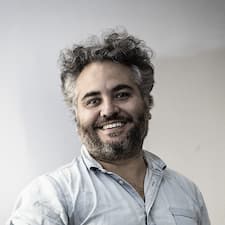
Diego Landivar is the co-founder of the MSc Strategy and Design for the Anthropocene, teacher-researcher at Esc Clermont BS and director of Origens Media Lab.
He co-founded the Closing Worlds project. He is responsible for the design studio Graphlab (Esc Clermont BS). PhD in Development Economics (CERDI-CNRS), he is also an alumnus of the Ecole Normale Supérieure de Paris-Saclay.
His work focuses on the ontological and cosmopolitical reconfigurations induced by the Anthropocene, from an anthropological perspective. These questions have led him to investigate cosmopolitical reconfigurations in the Andean countries, the law of nature and of non-humans, Indianism, the status of technical objects, controversies around ecological transition, territorial ontologies, and the decolonization of Mars.
His teachings concern the South of the Anthropocene, the protocols of investigation of the Anthropocene, the anthropology of the project and the protocols of redirection.
He accompanies different territories and organizations in implementing Ecological Redirection.

Emmanuel Bonnet is Professor and researcher at ESC Clermont Business School, member of Origens Medialab and Clermont Recherche Management (CLeRMa) at the University of Clermont Auvergne. He is the co-founder of the "Strategy & Design for the Anthropocene" MSc.
His research focuses on collective learning dynamics in indeterminate situations: situations of disorder and disorientation, in which actors do not know or no longer know what they have to do and learn. These learning situations are approached from a pragmatic philosophical point of view, using an ethnographic approach. His thesis investigated a simulation of space exploration in the Utah desert.
Within Origens Medialab, he is participating in a research project that focuses on the "organized world", its presuppositions and the acosmia (loss of world) they engender. He works more specifically on the collapse of "clichés" in learning situations in business schools, about the practices and infrastructures of the "organized world" in the Anthropocene.
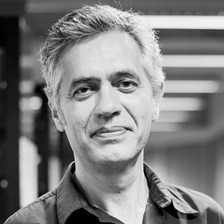
Yves-Marie Abraham is a professor at HEC Montréal, where he teaches the sociology of economics and conducts research on the theme of degrowth.
After having co-directed the publication of Décroissance versus développement durable : débats pour la suite du monde (2011) and Creuser jusqu'où ? Extractivisme et limites à la croissance (2015), he published last year at Écosociété a personal synthesis on degrowth, entitled Guérir du mal de l'infini.
He is also co-responsible for the specialization in the management of social innovation within the Master's program at HEC Montréal, where he has been offering a course on "sustainable degrowth" since 2013.
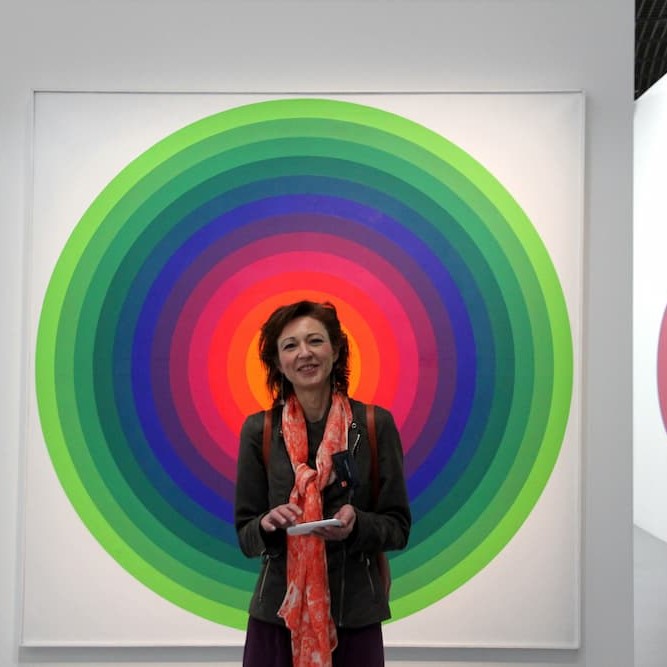
Laurence Allard is associate professor in communication sciences. She previously studied semiology and sociology at the University of Paris-3-Sorbonne Nouvelle and EHESS. She teaches at the Culture Department of the Faculty of Economic, Social and Territorial Sciences (FSEST) of the University of Lille and is a researcher at the Institut du Cinéma, de Audiovisual and New Media at the University Paris 3-Sorbonne Nouvelle. There she co-founded the research group "Mobile and Creation. She is also co-founder of the citizen science association "Labo Citoyen-Citoyens Capteurs" with which she was in residence at the Fablab of the Cité des Sciences et de l'Industrie de Paris and led workshops for the manufacture of DIY particle micro-sensors and data interpretation in different languages (dance, video, tangibilisation, games...). Finally, she leads expertise missions at ANSES and ADEME for the theme "Citizen pollution measures".
As a researcher, Laurence Allard has written numerous chapters, articles and books on the use of digital communication technologies in France and around the world from a socio-semio-anthropological perspective. She is also the translator of Donna Haraway for the anthology Manifeste Cyborg and other essays. Sciences-Fictions-Féminismes alongside Delphine Gardey and Nathalie Magnan.
Her work currently focuses on the citizen uses of digital technology, and in particular the smartphone in an ecocritical perspective in terms of content and materiality. She recently coordinated the issue 76 of the journal Multitudes, "Is it too late for collapse" with Alexandre Monnin and Cyprien Tasset, as well as issue 11 of the journal Sciences du design, "Anthropocène et effondrement" also with Alexandre Monnin and is preparing the book Ecologies du smartphone at Editions Le Bord de l'Eau with Alexandre Monnin and Nicolas Nova.
Her professional wiki : culturesexpressives.fr

Natalia Baudoin is a Bolivian and Venezuelan artist and designer, currently a SACRe doctoral student in the Symbiosis and Soft Matters groups at ENSADLab.
Her thesis "Convergent Design, Symbiotic Bricologies", studies the valorization of traditional crafts in France and Latin America through design.
Her research-creation work consists in questioning the fields of application of these indigenous artisanal knowledges to integrate them into our production system while respecting their culture and cosmology.
She also works in partnership with solidarity banks to promote the socio-economic integration of artisan communities in Latin America.
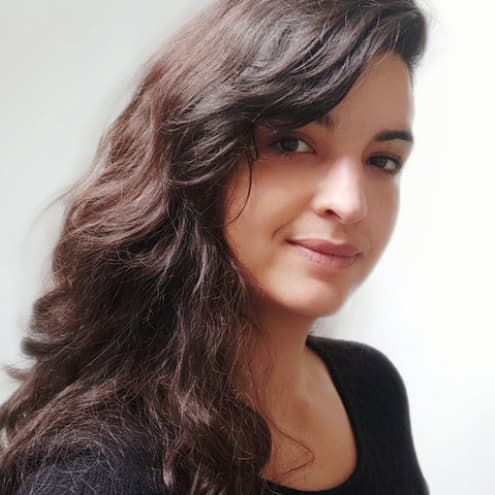
Co-founder of Resiliere.
Salwa-Ludivine Amdouni-Boursier holds a bachelor's degree in Biology of organisms and evolution and a master's degree in Biodiversity, ecology and evolution. She has acquired scientific knowledge and skills in ecology. Previously, she has worked in horticulture (BTSA Horticulture) and in the integration of people in difficulty in ecology and horticulture workshops (workshop instructor certificate).
Her work as a person in charge of knowledge synthesis missions at the Foundation for Research on Biodiversity and at the Ministry of Ecology, at a national and international level, has allowed her to produce and disseminate this knowledge at the science/politics/society interface, in autonomy.

Sylvine Bois-Choussy joined the 27th Region in 2017 to work on its international dimension and in particular on the partnership with the Bloomberg Philanthropies Foundation as part of the La Transfo program. She is also leading the European study tour program Enacting the commons, which examines the relationship between commons and public action.
Curious about how local actors experiment and initiate transformations in a globalized environment, she has previously led various European projects at the crossroads of artistic, social and urban issues.
She studied at the Sorbonne, the London School of Economics and the Institut des Hautes Etudes en Aménagement des Territoires en Europe.
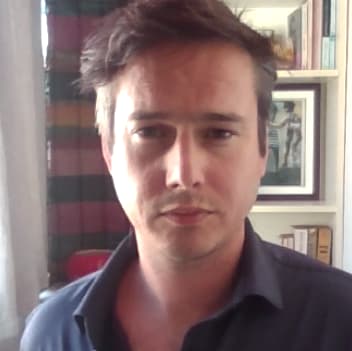
Erik Bordeleau is a philosopher, writer and curator / fugitive planner. He is currently holding a research position at NOVA University in Lisbon, and is also affiliated researcher at the Art, Business and Culture Center of Stockholm School of Economics. He has published and co-edited several books and articles in different languages at the intersection of political philosophy, contemporary art, world cinema and more recently about blockchain cultures, finance and the monetary turn, among which: Proof of Withdrawal: Finance in the Undercommons (2020); After the Attention Economy: Notes toward a Cosmo-financial New Serenity (2021). In collaboration with Saloranta & De Vylder, he is developing The Sphere, a research-creation project experimenting with Web 3.0 technology to develop new ecologies of funding for the performing arts.

Rémy divides his time between industry, entrepreneurship and research. He teaches metadesign at Sciences-Po Paris, and at the Umea Institute of Design in Sweden, and soon at CY-Cergy.
He is the founder of the advocacy think tank MissionHub. With a special interest in empathy, caring, reflexivity and generative tools. Develops tools for mission and impact. Has set up several international and multidisciplinary groups (portfolios and foresight/research/innovation programs), for Mitsubishi Electric, Samsung, Nokia, Orange, Qwant (music), Brickchain (personal data decentralization infrastructure). Founder of SociableMedia, research program at EnsadLab-PSL (solicitude, creativity, reflexivity) (2009-2015). (partners: MIT Media Lab, Orange, Bell Labs).
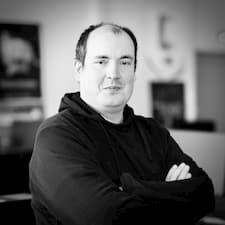
Manuel Boutet is a teacher and researcher. He is a sociologist, part of the pragmatist movement, and defends the importance of "investigating about investigations" - not only agents, not only actors, the people he meets are also investigators.
At the moment, he is carrying out investigations within extended communities of explorers in the fields of biocontrol in agriculture, video game communities, puppet audiences, urban travel assistance schemes for the visually impaired, and support for civic services in the structures of the social and solidarity economy.
What guides his commitments is the desire to explore forms of experience and worldviews - ways of finding one's way - in an environment where change is the ordinary, and where norms, however rational they may be, often seem to be a pure exercise of will rather than an effect of adaptation. How in a changing world can communities as well as individuals still find their way?

Patrick Degeorges coordinates the professional training program of the Urban School of Lyon.
Philosopher, active member of the World Academy of Arts and Sciences (WAAS), scientific advisor on sustainability issues to France Stratégie and UNESCO, he works with many public and private institutions in France and abroad.
Until September 2019, he directed, at the Ecole Normale Supérieure de Lyon, an innovative transdisciplinary training program, the Anthropocene Curriculum, to integrate into higher education the challenges of ecological and energy transition. From 2005 to 2010, within the Ministry of the Environment, in charge of the management of conflicts with large predators (bear, wolf, lynx), he developed an operational knowledge of wildlife conservation issues, and he continues to work in this field within the IUCN working groups. From 2010 to 2017, as head of emerging and strategic issues for the Ministry of Ecological and Solidarity Transition, he directly participated in the design and implementation of new policies on biodiversity and adaptation to climate change, both nationally and internationally.

Martin Denoun is a PhD student in sociology at the Groupe de sociologie pragmatique et réflexive (GSPR) at EHESS. He is working on how the French nuclear industry is projecting itself into the future, studying the major changes that these visions of the future have undergone over the last few decades and their consequences on the nuclear power infrastructure. More broadly, he is interested in the way in which sociotechnical systems become fragile and break down.
He also participates in EnergiCorpus, a Franco-German ANR research project, which compares the discourses on energy transition in France and Germany using socio-informatics tools developed by the GSPR.

Thomas Désaunay is an engineer and doctor in material sciences. His research in highly complex environmental technologies has led him to question the link between complexity and sustainability of systems.
He conducts research, training and popularization projects on low-techs. He is co-author in 2019 of the note "Towards Sober and Resilient Technologies - Why and How to Develop Low-Tech Innovation" at the Fabrique écologique. Since 2020, he has been working on the ORFEE project at the Campus de la Transition, funded by ADEME, which aims to experiment with low-techs on the scale of a school and to accelerate their dissemination. He animates training and low-tech workshops for schools, grandes écoles and NGOs.
His second subject of research and training is that of the strategic actor for the environment. Convinced that ecological action in France is burdened by 1) a predominance of the public action paradigm and 2) an excessive search for absolute knowledge of the system, he seeks to instill a greater strategic dimension in the design of environmental modes of action.

Interaction designer, teacher at Strate school of design and community organiser. He co-founded Common Future(s), a think-tank questionning the practices of design facing the Anthropocene.
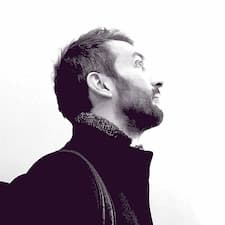
Geoffrey Dorne is a freelance designer - in search of resilience, autonomy, he carries out social, environmental, interactive design, graphic design, information and message design projects.
Geoffrey founded the Design & Human studio, and co-founded Labo.mg.
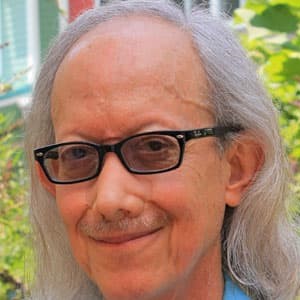
Arturo Escobar is an activist-researcher from Cali, Colombia, working on territorial
struggles against extractivism; postdevelopmentalist, post-capitalist and non-
patriarchal/non-racist transitions; and ontological design. He was professor of
anthropology and political ecology at the University of North Carolina, Chapel Hill, until
2018, and is currently affiliated with the PhD Program in Design and Creation,
Universidad de Caldas, Manizales, Colombia, and the PhD Program in Environmental
Sciences, Universidad del Valle, Cali.
Over the past twenty-five years, he has worked closely with several Afro-Colombian, environmental and feminist organizations on these issues. His most well-known book is Encountering Development: The Making and Unmaking of the Third World (1995, 2nd Ed. 2011). His most recent books are: Designs for the Pluriverse: Radical Interdependence, Autonomy, and the Making of Worlds (2018), and Pluriversal Politics: The Real and the Possible (2020). He is currently working on a book on relationality (Designing Relationally: Making and Restor(y)ing Life) with Michal Osterweil and Kriti Sharma.

Adrien Estève is an associate doctor at the Centre de Recherches Internationales (CERI) of Sciences Po and ATER in political science at the University of Côte d'Azur.
His research focuses on the consideration of environmental and climate issues in defense policies in France and the United States. He is a graduate of the Institut d'Etudes Politiques d'Aix en Provence (master's degree in public policy research) and of Sciences Po Paris (master's degree in political science - political theory).
He is responsible for the research seminar Environment and International Relations of CERI and is in charge of the working group Environment and Climate of the Association for War and Strategy Studies (AEGES). He has also been a visiting doctoral student in the Department of Political Science at Columbia University for the academic year 2017-2018 and in April 2019.
He recently published an Introduction to environmental political theory (Armand Colin, 2020)
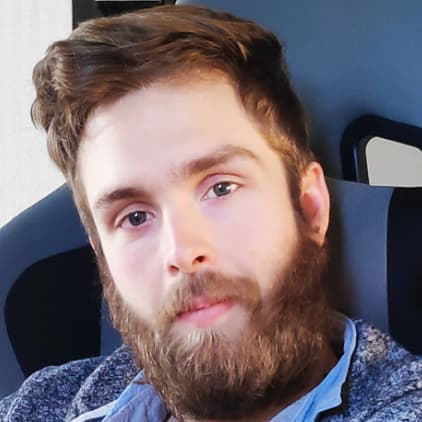
Co-founder of Resiliere.
Holder of a bachelor's degree in social and organizational psychology, and having completed a master 1 in ergonomics, Sullivan Evrard is particularly interested in human systems including intergroup interactions, human activities and their meaning as well as the organization of life in society, decision processes in an Anthropocene context.
His personal and professional experiences allow him to analyse the interrelationships in a given system and to envisage concrete ways to improve it thanks to a diagnosis based on his skills in ergonomics and psychology.

Serge Fenet is a lecturer in artificial intelligence. He belongs to the "Data Mining and Machine Learning" (DM2L) team of the LIRIS laboratory, which focuses on methods for extracting knowledge from complex data, with the aim of assisting knowledge discovery using automatic or semi-automatic methods. He also works in the INRIA STEEP team ("Sustainability Transition, Environment, Economy and local Policy").
His work focuses on the construction, evaluation and validation of numerical models in an inter-disciplinary context, and particularly in relation to certain central questions of the Anthropocene. He thus tries to participate in the development of the emerging field of ecoinformatics, which attempts to assess the sustainability of our modern human societies and their impacts on global ecosystems, in particular using modeling, simulation and numerical optimization methods.
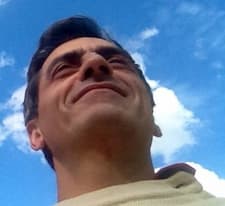
Xavier Fourt, artist and doctoral student in anthropology at EHESS, is a member of the group of designers Bureau d'études with Léonore Bonaccini. The group has developed different methods for mapping, network and system representation. He is an active member of the Ferme de la Mhotte (03), a multi-activity biodynamic farm that today involves 25 people in a school area of Bourbonnais.
Since 1995, founding members and volunteers of the Syndicat Potentiel (Strasbourg). Founders of the journal la Planete laboratoire (https://laboratoryplanet.org) and of the intermedia artists/biologists collective Aliens in green with Ewen Chardronnet.
Publication: Atlas of agendas - mapping the power, mapping the commons, Onomatopoeia edition, Eindhoven, English, 2015. Re-edited. 2020.

Sylvia Fredriksson is a designer and teacher-researcher. Her work focuses on the relationship between design, technique and politics.
Associated with the research pole of the Cité du design de Saint-Étienne between 2016 and 2018, she led the research program Design des Instances, dedicated to new configurations of space and democratic tools, as well as the scientific curator of the exhibition L'Expérience Tiers-Lieux - Fork The World within the framework of the International Design Biennial 2017.
Since 2020, she has been a member of the ECOLAB research unit of the Orléans School of Art and Design, Objects, crafts and computation program.
She is a member of the Oxamyne cooperative and a contributor to the work of the collectives SavoirCom1, Remix The Commons, Open Knowledge Foundation, design↔commun.

Tony Fry is an award-winning designer, design theorist, cultural theorist, educator and author. He is the principal and creator of The Studio at the Edge of the World (Launceston, Tasmania), Adjunct Professor, Architecture and Design, University of Tasmania. He is also: a visiting Professor at the University of Ibagué, Colombia, Formally Tony was Professor of Design, Griffith University, Brisbane (2007-2014).
His research interests include post sustainability and ontological design, cosmotechnics, decoloniality, and conflict and the new humanities in the age of a changing climate. As an author Tony has published fifteen books, has edited four, has essays in thirty collections and has published numerous articles and conference papers.
His most recent books are: Unstaging War : Confronting Conflict and Peace (Palgrave Macmillan, 2019), and A New Political Imagination, Making the Case, with Madina Tlostanova, (Routledge, 2021).
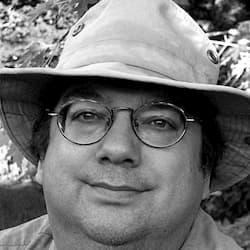
Philippe Gauthier holds a B.A. from McGill University and an M.Sc. from Université de Montréal, both in political science. He is currently studying for his M.Sc. in management at HEC Montréal and writing a dissertation on the adaptation of organizations to the effects of climate change, a work that is funded by a SSHRC fellowship.
A longtime economic and scientific journalist, he has been interested in energy issues for the past ten years. As such, he is a speaker and blogger, in addition to being a member of the scientific committee of the independent research group Polémos on degrowth.
He is currently writing a book on the oil industry. He is also a lecturer for the Master's degree in Strategy and Design for the Anthropocene from ESC Clermont and Strate Ecole de Design, in France.
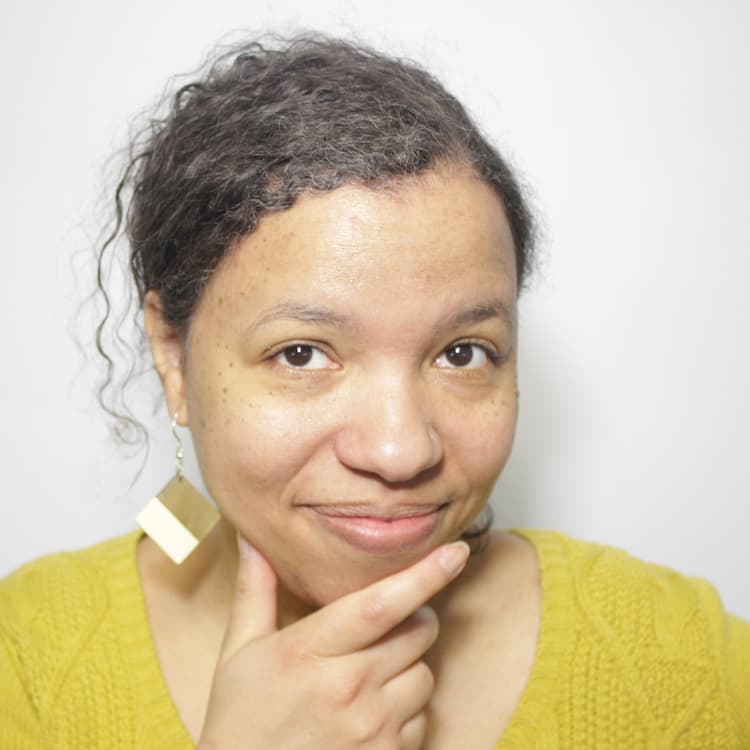
Lalya Gaye is an award-winning digital media artist, interaction designer, engineer, permaculturist and activist based in Geneva, Switzerland. She worked in Sweden for many years, and then in the UK where she founded and directed the now-defunct interdisciplinary design bureau Attaya Projects. Previous affiliations include the Viktoria Institute, Chalmers University of Technology, Medialab Prado, Rhode Island School of Design, and Culture Lab Newcastle. She was also an executive member of Artists’ Union England.
Lalya’s early work was influential in the field of mobile media. Her more recent work focuses on creating socially-engaged and -engaging experiences for audiences through producing interactive installations in public spaces. She also provides consulting in design and emerging technologies, curates and organises cultural events, and teaches at graduate level.
Lalya currently works at the European Broadcasting Union in Geneva, where she coordinates a transversal initiative on AI and data for public service media broadcasters. She teaches occasionally at the Media Design programme at the Geneva School of Art and Design, and at the Interaction Design programme at ZHdK (Zurich University of the Arts) in Zurich.
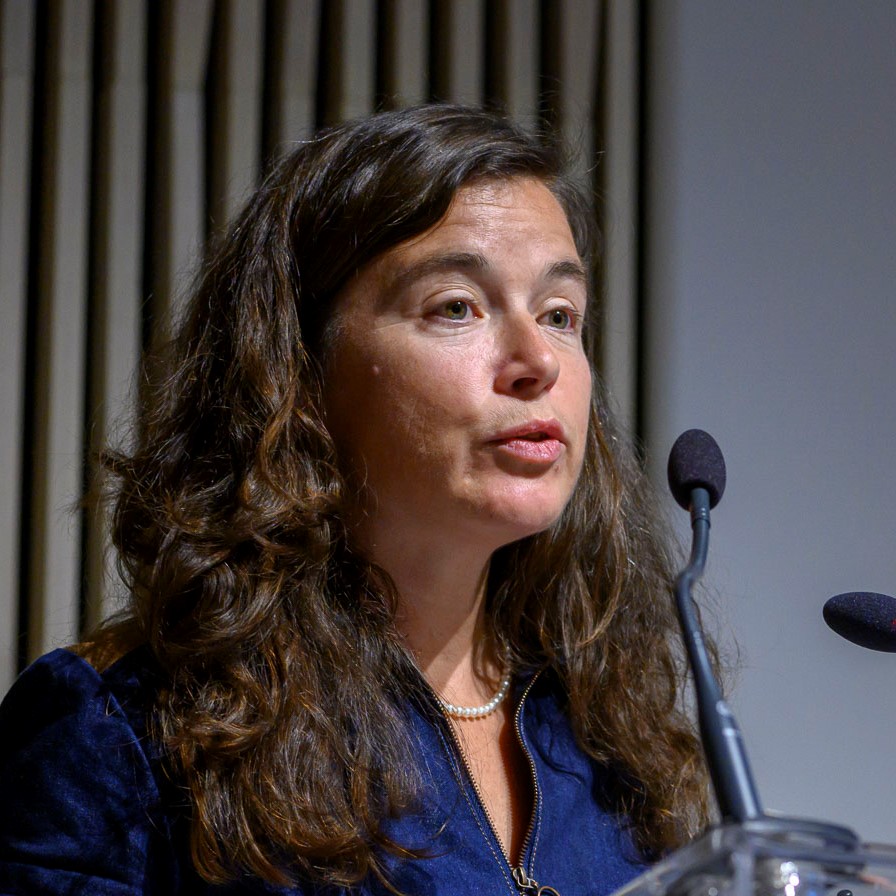
Caroline Gervais, 49, PhD, is an expert, trainer and facilitator in strategic sustainable development. Since 2002, her core business has been to accompany individuals and organizations in the transition to societies with renewed prosperity. Her talent lies in proposing training and transformation programs that accompany change, while respecting the singularity of individuals and organizations and always aiming to make them autonomous. To do so, she relies on the FSSD, a systemic, strategic and participative approach developed in Sweden, since 1989, by scientific consensus, which allows to integrate the sustainable development perspective from vision to action. She is currently the Scientific Director of My Sensei Lab and a member of the Scientific Committee of Time for the Planet.

After five years as a journalist specializing in skiing at skipass.com, Loïc Giaccone made a reconversion to societal and environmental issues thanks to the Master Climat et Médias of the University of Paris-Saclay.
He worked for a year and a half at Cerema (Center for studies and expertise on risks, environment, mobility and planning) managing the Resource Center for Adaptation to Climate Change, and has just joined the Georgetown Environmental Justice Program, in Washington DC, for a PhD on inequalities in climate scenarios.
He also writes articles on environmental issues and contributes to a journal dedicated to the future of mountain territories Les Passeurs.

Marie-Cécile is a critical designer and UX researcher. At the center of her practice are the study of uses, the empowerment of people and systems, social justice, accessibility by default and ecological redirection. She teaches in higher education institutions, notably at Strate Ecole de Design Lyon and ESC Clermont. She publishes articles and gives lectures on design and on themes such as Anthropocene, burnout, or inclusiveness and systemic oppressions in technology. She is a member of the association Designers Éthiques with whom she co-organized the 2020 edition of Ethics By Design. She co-created and animates the think tank common-futures.org.
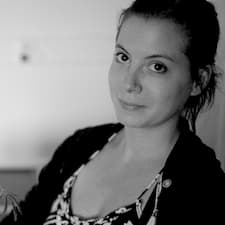
Pauline Gourlet (Ph.D.), is an interaction designer, researcher, and teacher, who splits her time between Paris and NYC. Her work addresses the role design can play in the development of both people and organizations. Her practice aims at questioning and transforming forms of human activities through participatory design and appropriation processes of artifacts, with a focus on data-related tools and collaborative writing techniques. She co-founded L’Atelier des Chercheurs, a collective of designers creating free tools that support learning and creative processes, using a participatory action research approach with various partners (public schools, fablabs/maker spaces, theaters, museums, public institutions...). She holds a Ph.D. in cognitive psychology and design from University Paris 8 and was previously appointed as a visiting researcher at The New School (2017-2018). She is now a research fellow of the Sciences-Po Medialab. Lastly, Pauline worked at the United Nations as Data and Innovation Lead and on various projects with beta.gouv. She is also a member of design↔commun, Tiers-Lieux Edu, et Faire École Ensemble.
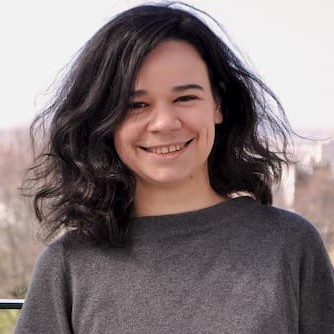
Louise Guillot holds a degree in urban policies and territorial strategies from the Institut d'Urbanisme de Lyon and in information sciences from the University of Nantes. Louise Guillot has been a project manager at La 27e Région since January 2017, a laboratory for experimentation and transformation of public policies. To bring her expertise on the emerging challenges of the city factory and territorial governance. In particular, she leads the action-research projects Réflexes Publics, Sonar, Juristes Embarqués. She previously held positions in public relations and strategic planning in federations, associations and consulting agencies.

José Halloy is Professor of physics at the Laboratoire Interdisciplinaire des Energies de Demain, LIED UMR 8236 at Université de Paris. He is teaching physics and complex systems modeling, in particular: complex systems and sustainability, prospective, physics of energy.
He is teaching in the Master E2S "Energy, Ecology, Society"; IPE "Physical Engineering of Energies"; ASE2 "Social sciences approach to energy issues"; Master Applied Physics: "The Physics of Energy”.
His interdisciplinary sustainability research deals with the coupling between materials and energy production in a complex systems framework. On the one hand, the energy transition is often seen as a problem of production of renewable energy without considering the material basis of this production. On the other hand, the analysis of socio-technical systems such as agriculture is often decoupled from all their energy and material consumption. Considering agriculture, we also analyze the world trade networks and the energy input in agriculture. We develop integrative approaches to analyze the material and energy foundations of past societies, present and possible future ones including social sciences inputs.
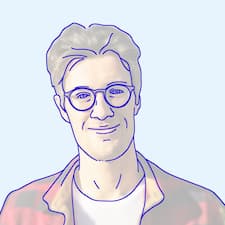
Nicholas Henderson is a biologist and a designer, co-fonder of Collectif TAMA. The Collectif deals with relational design and develop investigation and (carto)graphic tools and mediation. TAMA is working with CSR department, local governments, local associations and third places working for the common good. Simultaneously, the Collectif leads researchs on indigeneous living culture to inspire new harmonies between humans and between humans and non-humans.
Teacher at the Design School of Strate in Paris, he shares his independant research work with students where he discuss the designers' role and practises in the Symbiocene. From the critic of harrowing Anthropocene imaginary, it is essential to re-delight the common consciousness and to root the design inside the living beings by empowering the designers intellectualy, technicaly and humanly.
Publication: "Un regard relationnel sur le monde, la Nature et un jardin", Sens-Dessous 2020/2 (N° 26).
Research website: Symbiodesign, enraciner le design dans le vivant.

Antoine Hennion conducted his first survey at Centre de Sociologie de l'Innovation, as a student at the École des Mines, in 1974: he has never left it. The work was about two small record companies, already mixing music, tastes and market.
At the CSI, which at the time was developing the sociology of translation, which became famous under the name of Actor-Network Theory, he did not focus so much on the sociology of music as he did on the sociology of the acts that music offers, with its demand for performance in the present, its mediations, its amateurs, and its works "still to be done".
In situations characterized by fragility, indeterminacy and the need for commitment, such as organic agriculture, care and attention, the reception of migrants or ecological redirection, he collaborates in the pragmatist renewal of social inquiry with various collectives (Attachements, Pragmata, the PERU, Origins).

Maya Hey is a Vanier scholar (Social Sciences and Humanities Research Council, Government of Canada) and PhD candidate (Communication Studies, ABD) at Concordia University in Montreal|Kanien'keha:ka. She is also the recipient of the Public Scholars Award (2019) from the School of Graduate Studies and a former Fellow of the Faculty of Arts and Science.
Her doctoral research examines fermentation and feminist theory, particularly attending to the questions of collective ethics and interspecies thriving. She completed her master’s degree in Food Culture and Communication at the Università degli Studi di Scienze Gastronomiche (Pollenzo, Italy) and holds a Bachelor of Science in Nutrition, Dietetics, and Food Administration.
Her work experience spans chemistry labs, culinary kitchens, organic farms, and food markets, where she has cumulatively garnered over 15 years of experience facilitating discussions around contemporary food issues.
She has developed an array of collaborative projects with audiences ranging from pre-schoolers to health professionals and aims to engage the everyday eater with practical knowledge. She is currently the writer-in-residence at Pressbooks and aims to infuse open educational practices into her work as a scholar, educator, and advocate.
She shares her thoughts on her website (heymayahey.com), tweets at @heymayahey, and shares images on Instagram by the same handle.

Emile Hooge is director and partner at Nova7, a foresight and design agency working for companies and public authorities.
He is a member of the Plurality University Network and co-founder of Imaginarium-s to launch collective explorations of the future through fictional narratives.
He also teaches in the Master Altervilles (Alternatives Politiques et Stratégiques pour les Villes et les Métropoles), run by the Jean-Monnet University of Saint-Etienne and Sciences Po Lyon.

Cy Lecerf Maulpoix is a freelance journalist who has been involved for several years in LGBTQIA+ and climate justice action groups. He covers social struggles through interviews, investigations and reports published in the general and specialized press. As an author and translator, he is currently developing several theoretical projects related to the history and current events of deviant ecologies. He published Écologies Déviantes in 2021 (Cambourakis) and Edward Carpenter et l'Autre Nature in 2022 (Éditions Le Passager Clandestin).
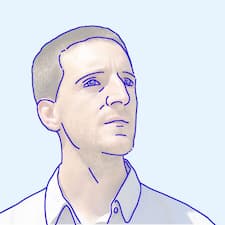
Designer and urban planner, co-founder of Collectif TAMA (relational design agency), I have been conducting for 10 years an action-research in sensitive cartography which is defined as the design of media for the restitution of the experience of the territory. During 3 years as the main teacher of the Master Design for Smart Cities at Strate Paris, I trained students on user-centered urban design, which I call UX urban design.
I give lectures in France and abroad on these topics, notably at the World Design Summit (Montreal, 2017), Smart Cities Expo (New Delhi, 2018) or at the Center for Architecture and Metropolitan Planning (Prague, 2019, video of the conference in EN).
Following my stay in Montreal I wrote an article entitled "Faut-il décoloniser le design ?".
We published in September 2020 in the magazine Sens-Dessous a manifesto of our practice of relational design entitled "Un regard relationnel sur le monde, la Nature et un jardin".
Marie Leroy is a student in user experience design at the University of Technology of Compiègne (master UxD). With her colleague Eléonore Sas, she seeks to identify and link together the different currents of thought as well as the design methodologies used to face the challenges of the Anthropocene. The results of this research project are then disseminated to designers through the blog of La Boussole des designers.
Previously a work-study student in the field of art direction, her profile is at the meeting point between social sciences and visual creation. The combination of these two areas of expertise allows her to imagine and design multi-sensory experiences that are sensitive and respectful of the different actors involved.
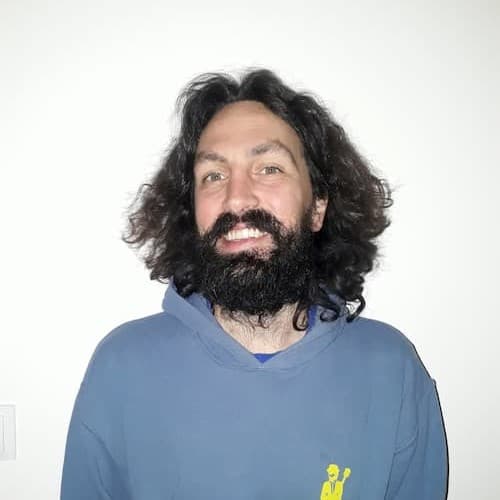
I am a teacher and researcher in science for engineering at the University Grenoble Alpes and member of the INRIA STEEP team since 2018. I hold a PhD in mechanical and industrial engineering. I am also a member of the Scientific Council of the PNR and/or the RN des Hauts de Chartreuse since 2020.
My favorite themes are modeling and environmental assessment of technologies and production processes.
Faced with the observation that technological solutions will probably never be able to contain the environmental impacts of human activities within the planetary limits, I decided to explore another way. The guiding idea is to offer citizens (or their political representatives) tools to inform the public (necessarily political) debate in order to better identify the paths of transformation towards organizations that would be able to respect the planetary limits.

Sophie Marmorat is a teacher-researcher at the Esc Clermont BS group. Doctor in Management Sciences from the University of Burgundy, and co-founder of the PEOPLE program.
Her work and investigations focus on corporate governance, organizational and managerial innovation and more recently on accounting models in the face of the Anthropocene. Her teachings focus on how to include environmental and climate issues in organizations' accounting models and more generally on corporate finance and accounting.
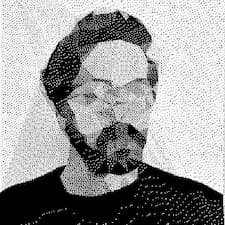
Grégoire is a creamer and cheesemaker in Paris, a trainer for the CAP (vocational training certificate) in creamers, and a university-educated sociologist and anthropologist.
In parallel to his two jobs, the practice of his profession is enriched by historical and anthropological research on cheese as a product, the objective of which is to establish it as a specimen-symbol of the evolution of the Anthropocene.
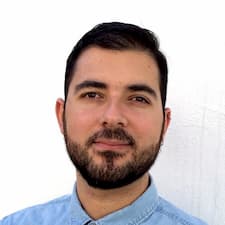
Ulises Navarro Aguiar is a postdoctoral researcher at HDK-Valand, the Academy of Art and Design at the University of Gothenburg in Sweden. Trained as an industrial designer at Tecnológico de Monterrey in Mexico, he obtained his master degree at Kedge Design School in France.
After a career as a designer in an agency, he joined the European research network in design and management DESMA, funded by the European Research Council (ERC), where he carried out an ethnographic survey in the product design department of Volvo Group as part of his doctoral thesis. His doctoral thesis focuses on the broadening of the scope of design in the context of profound organizational and technological change.
His work crosses design research, organization theory and sociology (especially STS). He is a member of the Business & Design Lab and of the collective Origens. He also teaches in the Master in Embedded Design at HDK-Valand.
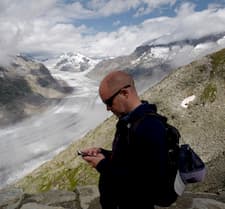
Nicolas Nova is Associate Professor at the Haute-Ecole d'Art et de Design (HEAD - Geneva) where he teaches anthropology of digital cultures, ethnography and design research.
He is also co-founder of the Near Future Laboratory, a foresight and innovation agency involved in design fiction projects.
His latest books are Smartphones. Une enquête anthropologique (Métis Presses, 2020), and Dr. Smartphone: an Ethnography of Mobile Repair Shops (IDP Lausanne).
Nicolas is about to publish a bestiary of the Anthropocene produced with the collective Disnovation and published by Onomatopee.

Trained in design at the ENSCI-Les Ateliers and the Boulle school, Laura Pandelle has specialised for 10 years in the accompaniment of social innovation and public policy projects, at the crossroads between design, investigative practices and political science.
After a long partnership with the association La 27e Région, she now collaborates with different collectives on issues of social transformation, through public action, but also through local development and artistic projects of territory.
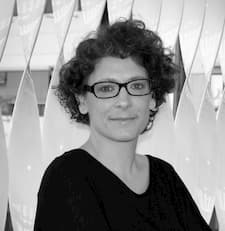
PhD in management sciences from the University of Grenoble, specialist in innovation, Senior Lecturer at the University Côte d'Azur.
My research in management and management sciences focuses on the emergent nature of organizational strategies and the role of humans and non-humans in these processes at different levels of the organization, including middle management and employee levels. It is on the development and diffusion of innovations that are eco-compatible, or that support contemporary ecological and social challenges, that I express these theoretical interests. Passionate about qualitative methodologies and strong collaborative and process-oriented approaches, I value multidisciplinary approaches and interactions with practitioners in order to develop knowledge, practices or tools. My current research is mainly oriented towards the issue of agroecology and in particular the diffusion of alternatives to chemical pesticides. I am also involved in the development of academic work aimed at proposing alternative research methods.

Victor Petit has been Assistant Professor at the University of Technology of Troyes (ICD-CREIDD) since 2019. He is also associate researcher at the Coscteh laboratory (University of Technology of Compiègne) and co-head of the IMEDD Master.
After a thesis in philosophy and history of science on the concept of environment (University of Paris VII, 2009), his research is now at the crossroads of the philosophy of ecology and the philosophy of technology and design.
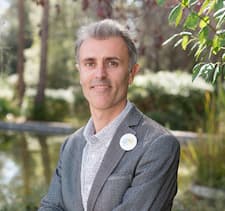
Expert for European Commission (INEA, H2020), for ADEME (French Agency for Environment & Energy), advisor for several corporate firms, Gabriel is the creator of the FabMob (la Fabrique des Mobilités) dedicated to open source and mobility which aims at to foster a new common culture.
Writer, speaker and teacher, he aims to inspire major transitions in the field of mobility.

Josée Provençal holds a PhD in political science (University of Ottawa) and specializes in energy issues. She is a member of the Observatory on Post-Growth and Degrowth (University of Clermont-Ferrand, France) and of the scientific committee of Polémos, an independent research group on degrowth in Quebec, and collaborates with the Canada Research Chair on Urban Climate Action, She is the Executive Director of the International Research Centre for the Prevention of Child Soldiers (Dakhla, Morocco) and has just completed a post-doctoral fellowship at the Institut national de la recherche scientifique (INRS), "urbanisation, culture et société" center. Her research and practice focuses on the political economy of energy, energy governance, just transition, extractivism and the power relations that accompany it, energy sufficiency, degrowth and the social relations that structure our energy consumption. More information on @JoProvencal
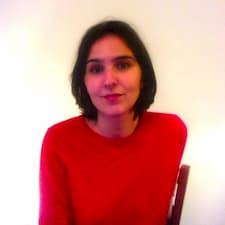
Emilie Ramillien, is an anthropologist, teacher and herbalist. Her research focuses on the frictions and superimpositions of traditional and modern cosmologies in our contemporary worlds. After years of field research in Bolivia on feminist and indigenous resistance to naturalist colonialism, the rights of non-humans, and the political and social trajectories of entities such as the Pachamama, she co-founded Origens research laboratory in 2010.
Within Origens, she investigates the cosmological transformations induced by the Anthropocene, the questions of human and non-human health in French rural peasantry, mainly through the prism of underground knowledge: permanence, resistance and diplomatic compositions with the living.
She also teaches the mapping of scientific controversies at ESC Clermont after having created, in 2013, the first lessons on the Anthropocene and the ecological crisis.
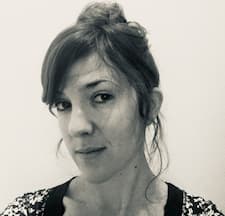
Elodie was educated at the Institute of Political Studies both in Lyon and Paris, and holds a degree in Chinese Mandarin from the East China Normal University. She has been working for large groups (Huawei), international law firms (UGGC), governmental organization (UBIFRANCE), international think tanks (Asia Centre) and engineering consulting firm (IED). From 2011 to 2013, she acted as the Beijing correspondent of the French Council of Investors in Africa, gaining an expertise on China’s “resources quest” in Africa. She has also acquired significant professional experience in the renewable energy sector across Asia and Africa. Since April 2017 she has been developing a scientific mediation project on the Anthropocene, GEO-SAPIENS, with the aim of creating bridges between academic researchers, artists, and civil society organizations interested in political ecology. Since 2019, she is undertaking a PhD at the University of Northampton (UK) on the strategic role of "ecological indicators" and digital monitoring tools in sustainability policies in both the UK and China.
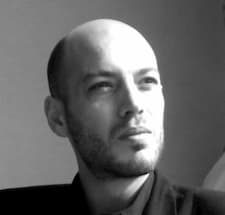
2007 - 2010: He worked as a project manager for social link design and sustainable development.
2008: he coordinated the City Eco Lab exhibition on sustainable development for the Saint Etienne International Design Biennial.
2010 - 2013: he ravels to Istanbul (Turkey) and is laureate of the Urban Design competition in Dubai : residence for the cultural service of the Emirates Government " Dubai Culture & Arts authority " with the French Institute of Abu Dhabi.
2013: Project manager at ARDI Rhône-Alpes on the European project Integrate Design for all in Living Lab, he works in research and development and coordinates 23 experiments in Europe.
2015: he returns for five years to the Cité du design's Research Division as a research officer.
In parallel to his professional activity, Nicolas Roesch seeks to de-anthropocenter design, leading to theories on design centered on the living. This research is the subject of courses, conferences and a book currently being written.

PhD student in Economic Sciences at EHESS (CEMS-EHESS) under the direction of Eve Chiapello, he works on monetary spaces, their institutional structuring, and issues related to their governance. This has led him to analyze cryptocurrencies as emerging monetary forms, emphasizing that, far from their primary ideology - aiming to substitute politics with the application of technical and computer rules - these monetary constructions demonstrate, on the contrary, the ontologically political and social dimension at the heart of all currencies.
He was a lecturer at Paris 1 Panthéon-Sorbonne University and from 2012 to 2018 he taught economics and social sciences in an associative high school dedicated to children in difficulty. From 2016 to 2019, he gave a seminar at EHESS entitled "Monetary space(s), parallel currencies, cryptocurrencies and institutional crises". Since 2017, he has also been giving lectures at ESILV and ESGI on currency and crypto-currencies.

Gauthier Roussilhe is a designer and researcher specializing in the environmental footprint of digital technology and sustainable digital design. In addition, he also studies the interaction between the history of economic ideas and design in the context of transition policies.
Before that, he co-runned a design agency from 2013 to 2017 and then directed the interactive documentary Ethics for Design. He then resumed his studies in London at Goldsmiths University to focus his practice and research on climate change and public policy issues.
Eléonore Sas is a student in user experience design at the University of Technology of Compiègne (master UxD). With her colleague Marie Leroy, she seeks to identify and link the different currents of thought and design methodologies used to face the challenges of the Anthropocene. The results of this research project are then disseminated to designers through the blog of La Boussole des designers.
After studying in literary preparatory classes and in information management, Eléonore is now interested in the influence of the Western dualistic vision, in the impact of techniques on human and non-human behaviors, and in the responsibility of designers regarding the habitability of the world.
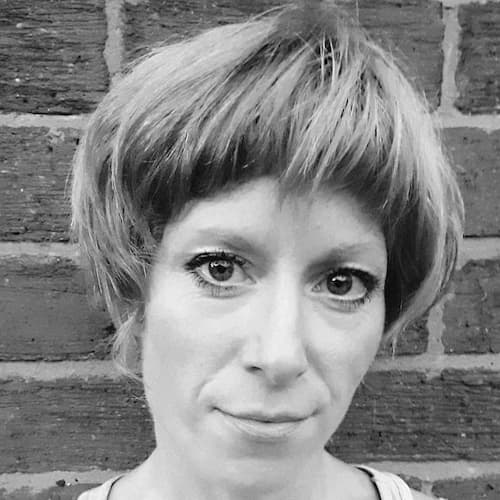
Rosa Stourac McCreery: performer, clown doctor, joker, facilitator, director, cultural instigator, currently based in Newcastle Upon Tyne, UK.
Rosa works with people with lived experience to tell stories and raise voices that too often go unheard or are marginalised, as part of a change-making process. After Completing a BA (hons) in Performing Arts at Middlesex University, she trained for 2 years at Ecole Jacques Lecoq International Theatre School in Paris, with Cardboard Citizens, London, and Theatre for Living, Vancouver. She has worked around the UK, in Canada, Europe and Africa.
Rosa’s background is in physical and visual theatre approaches to theatre for social change. Forum Theatre and Legislative Theatre, and the other tools of the Theatre of the Oppressed are key aspects of her practice.
Her performance work has encompassed dance theatre, circus theatre, street/outdoor theatre, object and puppet theatre, and aerial theatre. Her directing work has usually been in new writing or devised projects. Since 2007 Rosa has also been Creative and Operations director of a social enterprise, Dynamix Extreme CIC, building the largest indoor skatepark, the highest aerial circus training and the only indoor amphitheatre in the North East, and working with a wide range of communities and creative practitioners, including Lalya Gaye! She is currently Regional Coordinator and Associate Artist with Cardboard Citizens’ Cardboard Camp North East Programme, creating Forum Theatre with people with experience of homelessness.
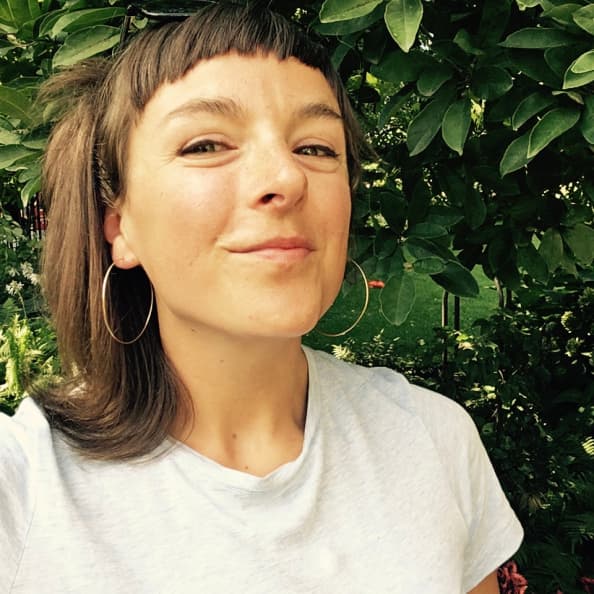
Stephanie Wakefield is an urban geographer whose work critically analyzes the technical, political, and philosophical transformations of urban life in the Anthropocene. She is currently Director and Assistant Professor of Human Ecology at Life University; Urban Studies Foundation Postdoctoral Research Fellow; co-lead of the NSF-funded Florida Coastal Everglades Long-Term Ecological Research Project Human Dimensions Working Group; and holds a PhD in Earth and Environmental Science from the CUNY Graduate Center. Previously she was a Visiting Assistant Professor of Culture and Media at The New School and taught urban and environmental studies for many years at Queens College.
She is the author of Anthropocene Back Loop: Experimentation in Unsafe Operating Space (Open Humanities Press) and co-editor of Resilience in the Anthropocene: Governance and Politics at the End of the World (Routledge), as well as numerous articles in academic and cultural journals including Political Geography, Geography Compass, Geoforum, Environment and Planning E: Nature and Place, and e-flux architecture.
She is completing a new book, Urbanization in the Anthropocene, which critically analyzes experimental sea rise adaptations in Miami and counters portrayals of the Anthropocene as a necessarily urban age by tracing an emergent 'urbicidal Anthropocene' beyond both urban resilience and planetary urbanization.
